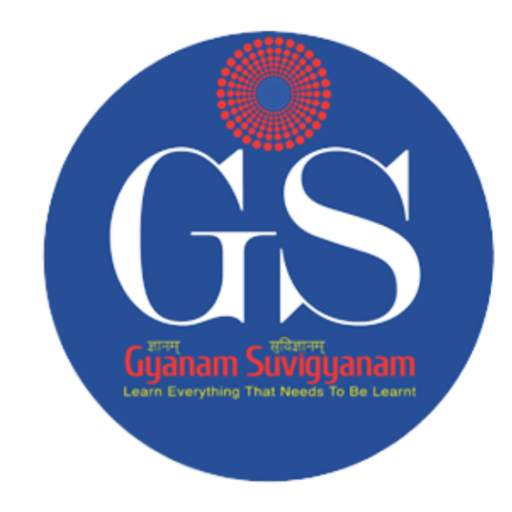Shift From Ignorance To Wisdom
A New Pathway to Divine Wisdom
This is a curricular chapter designed for a school syllabus, framed as a transformative journey from ignorance to knowledge, aligning with the powerful and specific language of your request.
Curriculum Document: Senior Elective Module
Module Title: The Inner Odyssey: From Ignorance to Illumination
Subject: Philosophy & Spiritual Literacy
Level: Grade 11-12 / A-Levels / IB Diploma
Guiding Quote: “The cave you fear to enter holds the treasure you seek.” – Joseph Campbell
Module Aims:
This module is not for the complacent. It is a rigorous intellectual and personal challenge designed for those who suspect there is a profound difference between living and merely existing. It aims to:
1. Systematically deconstruct the conditioned mind-the “ego”-that is governed by fear, prejudice, and the opinions of others.
2. Introduce the concept of the “soul” or “pure consciousness” not as a religious dogma, but as the seat of authentic genius and unwavering peace.
3. Provide the philosophical frameworks and practical tools to break free from self-imposed limitations (pragyaapradh – the offence of intellect) and consciously craft a life of purpose, resilience, and genuine fulfillment (summum bonum).
Learning Outcomes:
Upon successful completion, students will be able to:
Critically analyze their own thought patterns and identify external conditioning.
Articulate the difference between ego-driven action and soul-inspired purpose.
Apply practical techniques (mindfulness, self-inquiry, critical reflection) to quiet the “errant mind” and access inner wisdom.
Develop a personal framework for defining and pursuing their own ‘holy grail’ based on self-knowledge rather than societal pressure.
Defend the role of spiritual literacy as a critical component of a successful, integrated life.
Chapter 1: Recognising of the Self: Recognising the Chains of Ignorance
Introduction: The Call to Adventure
Every great journey begins with a realization: the current state is insufficient. This chapter is that first, crucial realization.
We begin by confronting the most fundamental human error: the misidentification of the self.
We have been taught to believe that the collection of our thoughts, opinions, achievements, and failures is who we are.
This chapter argues that this identity-the Ego-is not the captain of your ship but a noisy passenger who has seized the wheel,
steering you toward storms of anxiety, comparison, and emptiness. Your true destination, your summum bonum,
remains out of reach not due to a lack of effort, but because you are navigating with a flawed map.
1.1 The Anatomy of Illusion: The Conditioned Mind
Key Concept:Pragyaapradh (The Offence of Intellect):The primary barrier to enlightenment is not a lack of intelligence, but the intellect’s own arrogance and error. It is the mistake of trusting a tool that has been corrupted.
Content:
Deconstructing Programming: Where do your deepest fears, desires, and prejudices truly come from? We will trace the origins: family, culture, social media, advertising, and peer groups.
The Tyranny of “I, Me, Mine”: How the Ego constructs a false narrative of superiority (“I am better than”) or inferiority (“I am not enough”) to maintain its illusion of control.
Case Study: Analyzing the pursuit of “false glory” – chasing grades, status, or likes not for genuine fulfillment, but to feed the ego’s insatiable hunger for validation.
1.2 The Symptoms of Enslavement: How the Errant Mind Holds Sway
How do you know if you are a prisoner of your own mind? This section diagnoses the problem:
Being a Slave to Chance: Attributing outcomes primarily to “luck” or “misfortune,” thereby relinquishing personal agency.
Defying Wisdom: Consistently choosing short-term gratification over long-term good, despite knowing the consequences.
Surrendering to Blind Faith: Accepting ideologies-whether religious, political, or social-without critical examination or personal experience.
The Failed Journey: The profound frustration of having “tried your own way” but still failing to reach your destination. This failure is not of effort, but of direction.
1.3 The First Awakening: Exercises in Self-Observation
The Thought Audit: A daily journaling practice to track recurring negative or limiting thoughts and trace their potential external origins.
The “Why” Drill: Before any significant action, ask “Why am I doing this?” repeatedly (at least 5 times) to peel back the layers and reveal if the motive is ego (e.g., for appearance) or soul (e.g., for growth, service).
Media Deconstruction: Critically analyzing an advertisement or social media post to identify the specific fears and desires it targets to program consumer behavior.
Call to Action:
This chapter is a mirror. It may be uncomfortable to gaze into. The work here is to have the courage to admit, “I have been enslaved.
I have navigated with a broken compass.” This admission is not a sign of weakness, but the first and most potent act of true strength.
It is the decision to no longer hide behind chance, ego, or the programming of others.
It is the conscious choice to step out of the darkness of ignorance and begin the search for the light of self-knowledge.
Your journey against the wind begins not with a step forward, but with a look inward.
Discussion Questions:
1. Identify one strongly held opinion you have. Can you trace its origin? Is it truly yours, or was it given to you?
2. Describe a time you committed “pragyaapradh” – you knew the wiser choice but acted against your own better judgment. What voice in your head justified the unwise action?
3. What is your personal “holy grail”? Upon honest reflection, is this goal a true expression of your inner self, or is it something you believe will earn you validation from the outside world?
